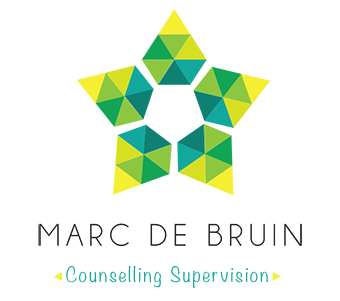What does being a good counsellor even mean??
In my many discussions with new and seasoned counsellors, there is nearly always a point where the counsellor remarks “I’m not even sure if I’m good enough at this”. Some self-doubt has crept in, some questioning of ability has started occurring. Generally, this happens after a not-so-great session with a client, or after the counsellor has stumbled upon a topic they didn’t feel comfortable dealing with, professionally (not enough knowledge about it or experience with it), or when the client is not making (much) progress.
So, what makes a “good” counsellor? You can look at this from many angles; from, for instance, a specific skills point of view; from a modality or school of thought point of view, or from a counsellor-person point of view (traits the counsellor has).
I think that it is more useful to take ourselves as counsellors out of the equation, and focus more on the therapy outcomes; is the client making progress in their treatment? Are they doing “better”? Is our counselling “therapeutically effective”?
Duncan, Miller and Hubble in 1999, and Lambert in 1992 already showed us counsellors that psychotherapy outcome can be attributed to the following factors:
- 40%: extratherapeutic (or client-)factors; things like personality, and support systems
- 30%: therapeutic relationship (empathy, safety, courage in therapy, etc)
- 15%: placebo effects (and the expectation/hope that ‘things’ will get better)
- 15%: modalities and techniques within specific therapies
Clients doing better lies mostly in factors common to all different types of counselling and don’t have much to do with specific techniques or approaches. So, what specifically, then, seems to make certain counsellors ‘better’ than others in terms of client outcomes?
According to Duncan et al. (2007)[1] there seem to be three factors that really make a difference:
1) Your willingness as a counsellor to go outside your comfort zone and look at where your client is and is NOT making progress. According to the research, most of the client change will happen in the first 6 sessions, so that is what you want to work on! Together with that, the therapeutic relationship is also very important. Clients who like their counsellor AND make changes fairly quickly seem to stick with therapy, and generally do better. So, if a client doesn’t seem to make much progress, you will have to address this quickly, otherwise there is a fair chance clients will drop out.
2) Have “measurables” in place to monitor counselling progress and find out how clients are making that progress. What seems to work? How do they know? What are they doing? Seek feedback as often as you can, and use standardised measures, or at least use what I call “tangibles”: can we see a clear difference between one result and the next? A client stating to be “happier than last time” is hard to measure; a client reporting that they’re going out with their friends twice per week instead of not at all (and that makes them feel happy!) is something that can be measured, and seems to contribute to happiness. Duncan et al. encourage counsellors to use the ORS (Outcome Rating Scale) and SRS (Session Rating Scale), but you don’t have to use those ones. Any type of measurement that shows actual improvement will work!
3) Keep your clients as engaged as possible! Often, what the client needs is not we think they need. And if we then pursue our own agenda (thinking that we counsellors know what the client must want), we run the risk of losing the client. Or, if the client mentions something that they find helpful, and we might (accidentally) dismiss it because that cannot be REALLY helpful, we run the risk of missing opportunities for growth. In short: we want to work together with the client, and be open to what THEY consider to be helpful as much as what WE as counsellors think could help.
And let’s face it: even though the above factors can help counsellors to improve client outcomes, there will be some clients who, even with the best intentions, will not improve while working with you. Maybe they will not improve, period. Maybe they will not improve under your guidance. Best practice is to not hold on to these clients, but refer them on as soon as it’s clear they’re not going where they would like to be going. Remember: this has nothing to do with you, per se, so there is no need to make it “personal”. And if you think you do play a role in the lack of progress, then that’s good feedback! Increase your knowledge; do some more training; level up. As Duncan, Miller and Hubble state: “…when we’re good, we’re very good, but when we’re bad, we can be even better.”
[1] Duncan, B., Miller, S., & Hubble, M. (2007). How being bad can make you better. Psychotherapy Networker, November/December, 36-45, 57





Trackbacks & Pingbacks
[…] university students often have questions about “how to be” a counsellor. They seem to think there is a particular way we should […]
[…] your foundations. If you have studied counselling, you are equipped to talk with people. All the other bits and pieces are interesting and […]
Leave a Reply
Want to join the discussion?Feel free to contribute!